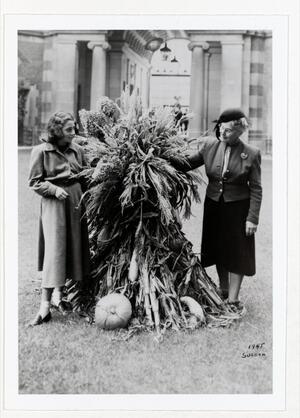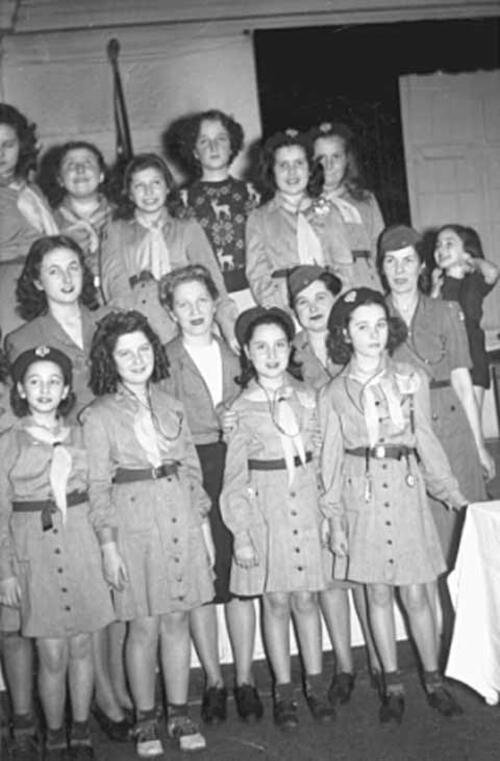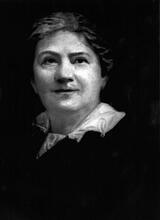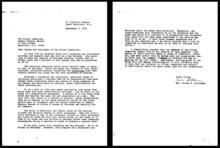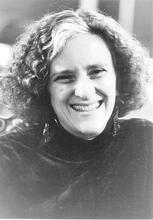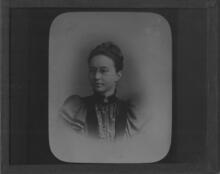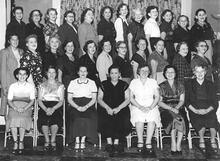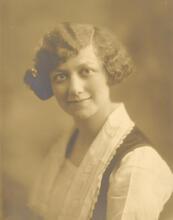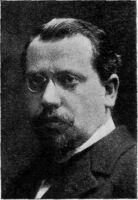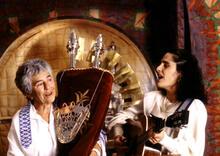Adele Ginzberg
In 1909, Adele Katzenstein married Louis Ginzburg and moved from Berlin to New York. Though she had received only basic education, she joined the Liberty Bond Campaign during World War I and then the National Women’s League of the United Synagogue in 1920. She became an important representative for the League across the world, wrote a monthly column for its magazine, and was key in creating the National Women’s League’s Girl Scouts project in 1946. Her husband was a professor of Talmud at the Jewish Theological Seminary of America, and she became an instrumental part of the JTS community, hosting students for Shabbat, decorating the Seminary sukkah, and fighting for equal rights for women in synagogue life.
Known as “Mama G.” by generations of admirers, Adele Ginzberg was an influential figure in the Conservative Movement as wife of the famed Louis Ginzberg, professor of Lit. "teaching," "study," or "learning." A compilation of the commentary and discussions of the amora'im on the Mishnah. When not specified, "Talmud" refers to the Babylonian Talmud.Talmud at the Jewish Theological Seminary, and was an active member of the National Women’s League of the United Synagogue. Ginzberg was a role model and inspiration to rabbinical students and women leaders and an early supporter of equal rights for women in synagogue rituals.
Early Life
Born on May 11, 1886, in Frankfurt-am-Main, Germany, daughter of Michael and Sophie Katzenstein and older sister of Max and Martha, Adele (Katzenstein) Ginzberg moved to Berlin at age eight after her mother’s sudden death. She received basic schooling and then, unable to study nursing as she wanted, she instead worked briefly in her father’s real estate office. She married Louis Ginzberg in 1909 and moved to New York. They had two children, Sophie (Ginzberg) Gould and Eli Ginzberg, professor of economics and director of the Eisenhower Center for Conservation of Human Resources at Columbia University.
Women’s Leader
Ginzberg first became involved in community affairs with the Liberty Bond Campaign during World War I. From 1920 on, she was closely associated with the National Women’s League of the United Synagogue. Serving as its representative on several national and international organizations, she also wrote a monthly column in its magazine, Outlook. She was instrumental in initiating the Women's League’s Girl Scout project in 1946, which led to the establishment of the Menorah Award for Jewish Girl Scouts. Ginzberg was also devoted to aiding the blind through the Jewish Braille Institute.
Life and Leadership at the Seminary
Ginzberg, together with her husband, unofficially took over the Schechters’ role as “Mr. and Mrs. Seminary” at the Jewish Theological Seminary. A fearless woman with an irreverent personality and colossal energy, Ginzberg brought great vitality to the seminary community. She hosted open houses on SabbathShabbat and holidays and invited each member of the seminary’s senior rabbinical school class for Shabbat lunch. After her husband’s death in 1953, Ginzberg continued to invite students for Shabbat meals. Ginzberg was also long noted for decorating the Jewish Theological Seminary’s Booth erected for residence during the holiday of Sukkot.sukkah, which is named in her memory. Finally, Ginzberg was one of the few of her generation to join the struggle for equal rights for women in synagogue ritual life.
Legacy
In recognition of her varied talents and influence, Ginzberg was honored as New York State Mother of the Year in 1966, was inducted in the seminary’s Honorary Society of Fellows in 1976, and was awarded the Mathilde Schechter Award posthumously in 1980. Ginzberg died in New York City on May 10, 1980.
Ginzberg exemplified those women whose status and influence derive initially from their illustrious husbands, but who used their position to educate and enrich Jewish life on their own terms. She conveyed the vitality of Jewish life to generations of Conservative Jews and inspired many to adopt a forward-thinking stance.
AJYB 82:365–366.
Ginzberg, Eli. Keeper of the Law (1966).
“Irrepressible, Unforgettable, ‘Mama G.’” Outlook 21 (Fall 1980): 4, 20–21.
“Presentation of Mathilde Schechter Award.” Women’s League Biennial Convention Proceedings (1980): 74–77.
“Quotable Quotes.” Scope (February 1964): 2.
Shenker, Israel. “Adele Ginzberg, at 90, Says, ‘So What?’” NYTimes, May 16, 1976.
United Synagogue of America. National Women’s League. They Dared to Dream: A History of National Women’s League, 1918–68 (1967).

